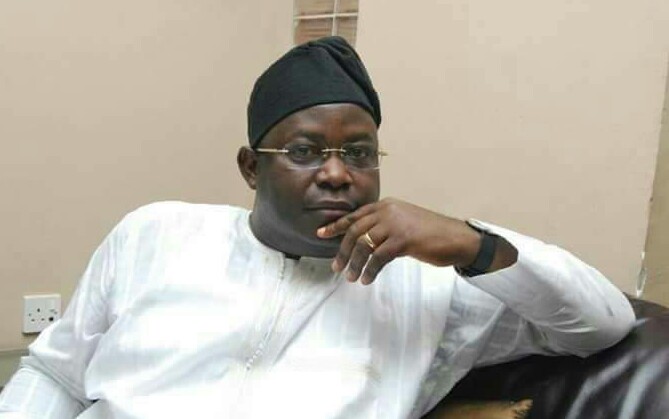News
Osun DMO Replies Former Commissioner For Finance, Wale Bolorunduro, Asks Him To Get Facts On State’s Finances Right

The Osun Debt Management Office, DMO on Friday described a recent social media publication of a former Commissioner for Finance in the state, Mr Wale Bolorunduro concerning the state’s finances as misleading with the half-truths it contains.
According to a statement of clarification on the misconceptions made available to CityMirrorNews in Osogbo by the Osun DMO through its Director General, Mr Tunde Adejumo, the write-up by the former commissioner does not in anyway show the true financial status of the state.
The Osun DMO beleives it is a misconception to interpret the deferral of the monthly loan repayments on Salary bail-out and Budget support loans to mean another windfall for the state’s availability and use, stressing that the State’s cashflow at this time remains stressed going by the insignificance of the deferred monthly loan repayments when compared with the unexpected drop in the State’s monthly statutory receipts caused by the COVID 19 pandemic.
The DMO added that the management of the State financial affairs at this difficult time requires exceptional sagacity, otherwise meeting the State’s critical and mandatory obligations (such as salary, pension, debt repayment, and capital expenditures) would have been an impossible task.
The statement read in part, “It is no longer news that the State of Osun has some loan portfolios (both domestic and external) being repaid through her monthly receipts from the Federation account, the State has never reneged on any of her debt obligations from time to time.
“For avoidance of doubts, the chunk of the State’s current debt stock is the FGN bond and the External debts (usually referred to as Legacy loans). The FGN bond represents the accumulated balances on the various loans obtained by the State government from some commercial banks between 2012 and 2014, and eventually restructured into a longer-tenored, and concessionarily-priced Bond, anchored by the Federal government of Nigeria (FGN) in 2015. Other debt portfolios of the State are FGN’s intervention loans extended to States across the country as a matter of exigency.
“The FGN’s intervention loans include Salary bail-out, and Budget support facilities extended to States to cushion the impact of the 2014 slump in oil revenue and 2016 economic recession in the country respectively. The FGN’s recent decision to defer loan repayments on these intervention loans during this period was born out of her desire to provide necessary succour to cushion the severe impacts of the huge drops in revenues accruing to Federation account on States’ cash-flow. The monthly loan deferral is only applicable to the State’s Salary Bail-out and Budget support facilities. In total, monthly deductions on hold on these two facilities is just =N= 385.3million, representing about 20% of the State’s monthly loan servicing figure.
“Despite the acknowledged huge drop in States’ monthly allocations at this time, monthly deductions are still made for the State’s remaining loans (FGN bond, the various external debts, and other FGN’s asset-secured loans) being serviced from the State’s monthly allocations.
“Therefore, it is considered a misconception to interpret the deferral of the monthly loan repayments on Salary bail-out and Budget support loans to mean another windfall for the state’s availability and use. Instead, the State’s cashflow at this time remains stressed going by the insignificance of the deferred monthly loan repayments when compared with the unexpected drop in the State’s monthly statutory receipts caused by the COVID 19 pandemic, and the unfailing huge obligations on the other debt portfolio of the State.
“To be frank, management of the State financial affairs at this difficult time requires exceptional sagacity, otherwise meeting the State critical and mandatory obligations (such as salary, pension, debt repayment, and capital expenditures) would have been an impossible task.
“While the State government welcomes all informed opinions, views, contributions and criticisms on any issues aimed at improved governance in the State, it would be highly instructive if nothing but facts, verifiable figures and statistics remain the basis of such dialogue. This is necessary to avoid misinforming members of the public”. The D.G stated.
-

 News5 days ago
News5 days agoInsecurity: Kogi Schools Resume On Monday
-

 Opinion4 days ago
Opinion4 days agoDon’t Pull the Plug: Why Nigerians Are Pleading for the U.S. to Extend Its Police Training Program — and Why It Must Synergize With New Military Arrivals
-

 Crime4 days ago
Crime4 days agoVigilante Reportedly Shoots Colleague Dead In Plateau
-

 News2 days ago
News2 days agoRamadan: Osun Cleric Urges Compassion Among Muslims As Asejere Distributes Relief Materials To 537 Beneficiaries






1 Comment